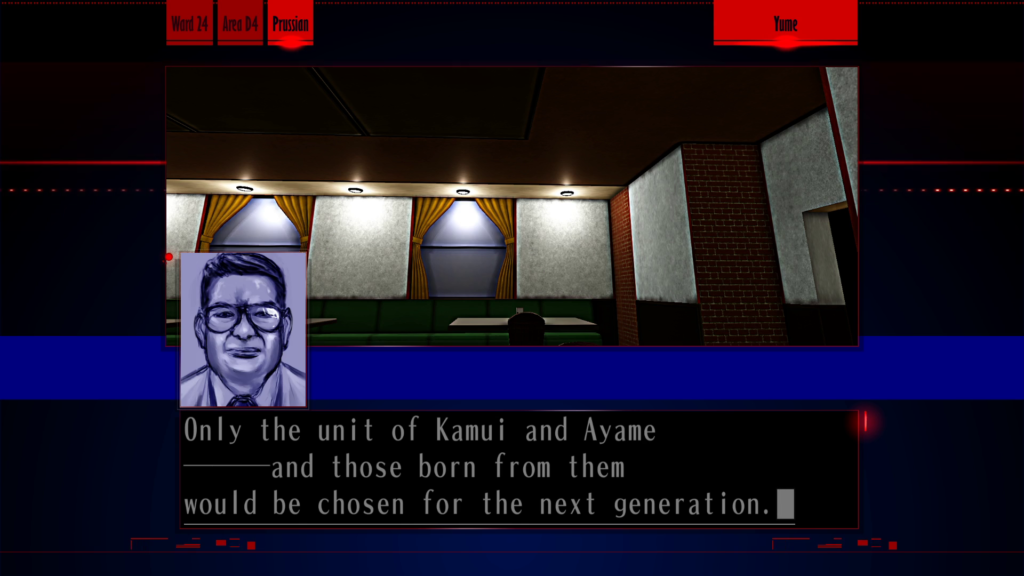Shimohira acts against her own desires in a seemingly haywire manner, however, with Shelter Kids Policy Implementation Office Administrator Enzawa Kaiji’s approval—with approval from power. Ayame is the future that he desires. Recall that he considers her “closer to Format Kamui than anyone else.” Based on what he describes to Tokio at Prussian, Enzawa believes that the next generation should be the offspring of Shelter Kids so that the old men can better control them, and the HC Unit and Special Forces will kill other members of the population. Compare this to Kinshiro’s eugenics-adjacent rambling in “new world order” described further on.

What is odd is that Sumio has such a strong admiration for Shimohira, continuing to hold her up as his ultimate ideal in The 25th Ward. This seems inconsistent both with Sumio’s broader characterization and with what Shimohira does in the story. Sumio is, after all, not a serial killer or misogynist but a vengeful political terrorist. There is some sense in that Sumio is like Kamui and Kamui and Ayame are drawn to each other, but a flaw of my analysis is that I have no adequate explanation for this character trait.
However, the syndicates lose control of Format Kamui, whether due to the unstable nature of criminal power or what Uminosuke takes to be Nezu’s deliberate prank. The spread of information online, between people instead of media entities, has a potential to be liberatory instead of misleading or purely destructive. Recall that Fujiwara proliferates his art and information digitally, in online media on the cutting edge of 1990s technology. This leads to the “facts” of the fourth Kamui as an ideological force or liberatory power. What this means is explained below. First, though, there is another point about Format Kamui.